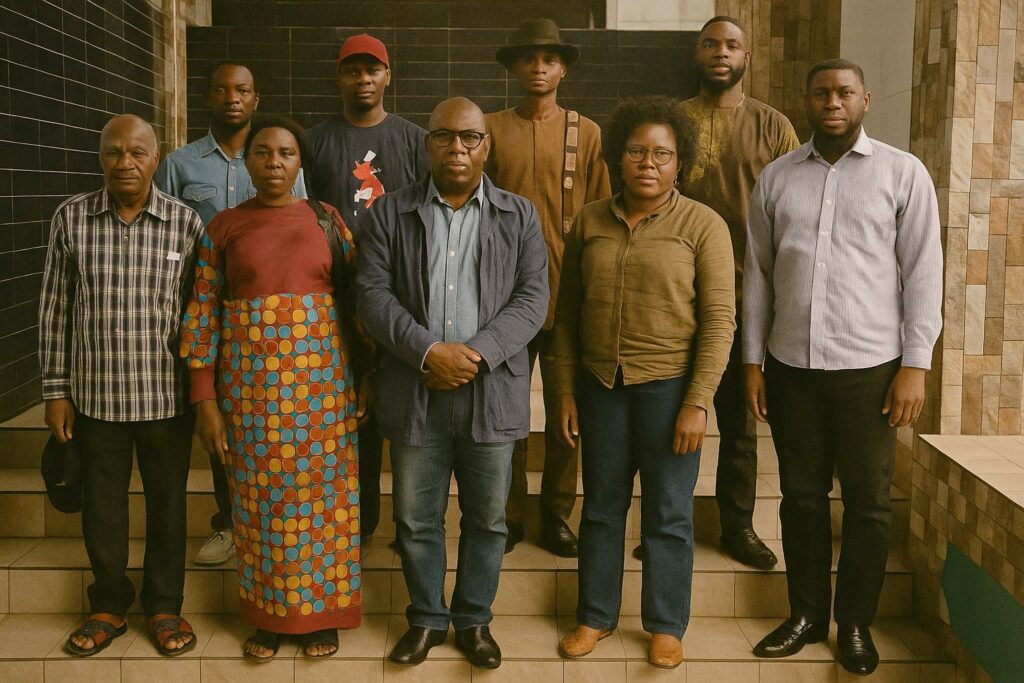A discreet Saturday reset in the Congolese capital
On 21 June 2025, a subdued ceremony in Brazzaville’s fourth arrondissement signalled a fresh chapter for the Union pour la Nation, the opposition movement launched scarcely a year ago by the former banker-turned-politician Félix Guy Charles Paul Manckoundia. Away from the grand halls favoured by the ruling Parti Congolais du Travail, Manckoundia unveiled a trimmed National Executive Committee, emphasising what he termed “strategic sobriety” in a brief address relayed by local daily Les Dépêches de Brazzaville. Observers from the Centre d’Analyse et de Prospective des Politiques Africaines told Radio Congo that the choice of a modest venue echoed the party’s narrative of frugality and closeness to rank-and-file supporters.
Thirteen chairs and the algebra of opposition symbolism
By reducing the committee from fifteen to thirteen portfolios, Manckoundia signalled both consolidation and intent. Congolese political culture assigns weight to numbers: fifteen evoked the cumbersome structures of older parties, whereas thirteen suggests agility without forfeiting representativeness. Five newcomers replace members reassigned to provincial coordination posts, part of a decentralisation drive designed to counter accusations that the Union pour la Nation is confined to Brazzaville’s educated elite. Analysts at the think tank Policy Forum Central Africa note that a leaner politburo can accelerate decision-making, a lesson drawn from the 2023 legislative campaign in which several small parties lost momentum amid internal consultations.
Gender equations and technocratic accents
The elevation of Esther Blandine Claudia Bouanga as secretary-general advances the party’s pledge of gender inclusivity. Bouanga, a lawyer educated at Marien Ngouabi University, now becomes one of the rare women to hold such a post across Congo’s opposition landscape, rivalled only by UPADS’s Nicole Ebina. Her appointment, coupled with portfolios entrusted to Armandine Murielle Moutila Nsayi in finance and Marianne Kipissa Mbélé in national cohesion, nudges the gender ratio of the executive to just over thirty per cent—higher than the national parliamentary average of 11.3 per cent reported by the Inter-Parliamentary Union. Technocratic profiles also dominate: economist Ghislain Mezieba takes charge of rural economy, while data engineer Alain Matala-Demazza assumes the communication brief, an allocation intended to burnish the party’s modernist image among urban youth.
Diaspora outreach and the digital calculus
Brice Trésor Tsémoua Mbambouly’s remit—co-operation, party relations and the Congolese diaspora—signals recognition of an electorate often overlooked in Brazzaville. World Bank estimates place Congolese remittance flows above 160 million USD annually, underscoring both the economic clout and the political voice of expatriates in Île-de-France, Ottawa and Johannesburg. In consultations with Congolese associations in Paris earlier this year, Manckoundia pledged an online primary to refine the party’s legislative slate, mirroring practices of Senegal’s Pastef. If implemented, Union pour la Nation would pioneer a digital mechanism in Congo, aligning with the new secretary for innovation, Rock Stanislas Ngakoly, who argues that “political legitimacy will increasingly be coded in algorithms as much as in ballots.”
Threading the needle with the ruling PCT
Manckoundia situates his movement at a delicate distance from President Denis Sassou Nguesso’s Parti Congolais du Travail. Publicly he denies harbouring presidential ambitions for 2026, yet his interventionist shadow budget published last January, which proposed reallocating hydrocarbon revenues toward rural electrification, drew a swift rebuttal from PCT spokesperson Serge Michel Odzocki in the pages of La Semaine Africaine. The streamlined executive may therefore be read as a war room preparing for heightened contestation. Political scientist Sylvie Ntsame, interviewed on RFI, suggests that by foregrounding portfolios such as human rights, Indigenous affairs and environmental innovation, the party is courting constituencies where the PCT appears vulnerable after the controversial forestry concessions signed in 2024.
Regional resonance and the long view toward 2026
Beyond domestic optics, the reorganisation reverberates across Central Africa, where opposition parties often fracture under the stress of patronage politics. Diplomats in the Economic Community of Central African States quietly welcomed what one envoy described as “institutional hygiene” within an opposition that could, if stabilised, temper political polarisation. For international partners contemplating post-petroleum diversification in Congo, the prominence of portfolios dedicated to ecology and solidarity economy may provide a point of policy convergence. The ultimate test, however, remains electoral. The national commission is expected to announce the calendar for the 2026 cycle by December; only then will Manckoundia’s thirteen-seat experiment confront the realities of field campaigns in districts stretching from Pointe-Noire’s port suburbs to the forested Sangha. For now, the recalibrated Union pour la Nation stands as a compact laboratory where Congo’s opposition rehearses governance, strategy and, perhaps, an alternative future.

